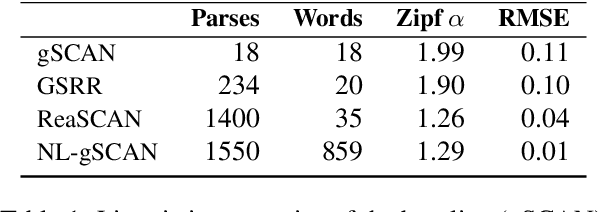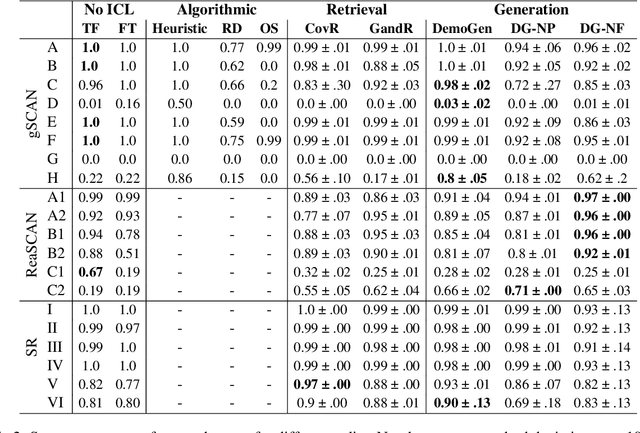Sam Spilsbury
Improved Compositional Generalization by Generating Demonstrations for Meta-Learning
May 22, 2023



Abstract:Meta-learning and few-shot prompting are viable methods to induce certain types of compositional behaviour. However, these methods can be very sensitive to the choice of support examples used. Choosing good supports from the training data for a given test query is already a difficult problem, but in some cases solving this may not even be enough. We consider a grounded language learning problem (gSCAN) where good support examples for certain test splits might not even exist in the training data, or would be infeasible to search for. We design an agent which instead generates possible supports which are relevant to the test query and current state of the world, then uses these supports via meta-learning to solve the test query. We show substantially improved performance on a previously unsolved compositional behaviour split without a loss of performance on other splits. Further experiments show that in this case, searching for relevant demonstrations even with an oracle function is not sufficient to attain good performance when using meta-learning.
Compositional Generalization in Grounded Language Learning via Induced Model Sparsity
Jul 06, 2022



Abstract:We provide a study of how induced model sparsity can help achieve compositional generalization and better sample efficiency in grounded language learning problems. We consider simple language-conditioned navigation problems in a grid world environment with disentangled observations. We show that standard neural architectures do not always yield compositional generalization. To address this, we design an agent that contains a goal identification module that encourages sparse correlations between words in the instruction and attributes of objects, composing them together to find the goal. The output of the goal identification module is the input to a value iteration network planner. Our agent maintains a high level of performance on goals containing novel combinations of properties even when learning from a handful of demonstrations. We examine the internal representations of our agent and find the correct correspondences between words in its dictionary and attributes in the environment.
 Add to Chrome
Add to Chrome Add to Firefox
Add to Firefox Add to Edge
Add to Edge